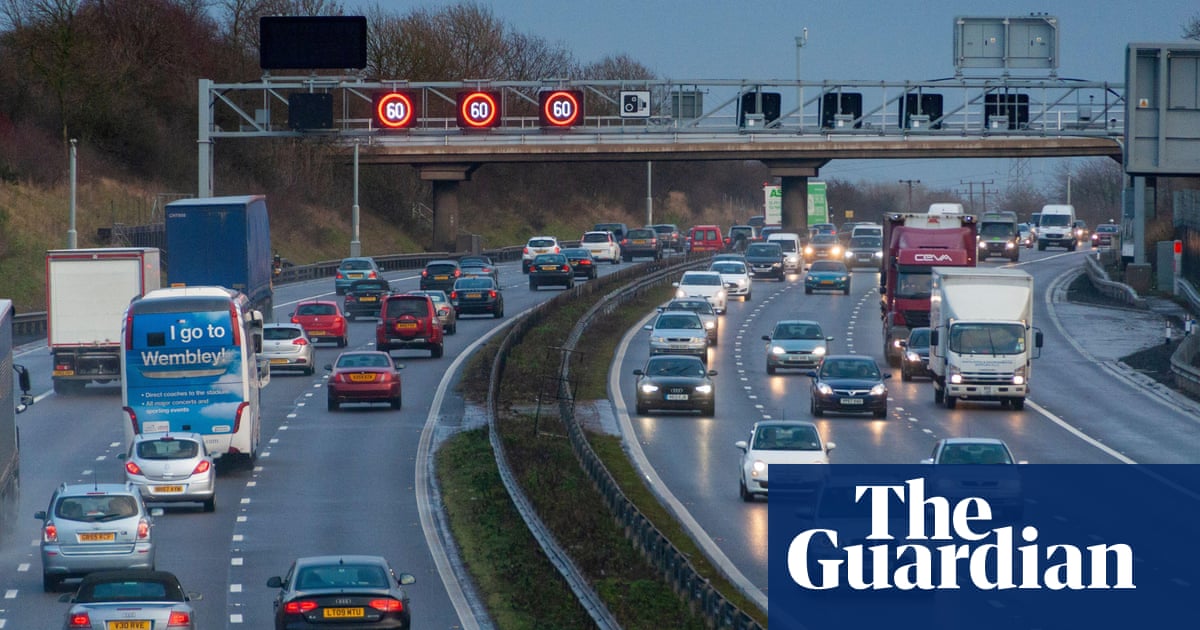The vigilante drivers battling Britain’s traffic cameras

- by Admin
- July 10, 2024

The cameras are everywhere. Our motorways, our car parks, our quiet suburban streets – automatic number plate recognition, or ANPR, observes Britain’s drivers through a vast network of unblinking eyes, keeping tabs on where and when we’ve travelled.
Unbeknown to most of us, this is a cornerstone of our civic infrastructure. ANPR systems allow the police to trace and monitor criminals, traffic authorities to keep our roads safe, and, increasingly, for councils and other operators to enforce Low Traffic Neighbourhoods (LTNs), low emission zones and parking fees. From county lines drug-running to overstaying your welcome at Waitrose, ANPR technology is poised to dob you in.
The chances are your number plate is logged on ANPR whenever you leave your drive, another tiny entry in a vast database – one of the largest of its kind in the world. But, in spite of the engineering behind this nationwide system of cameras, and the fact that it’s relied upon to fight both terrorists and yellow-box dawdlers, Britain’s mighty ANPR network has a charmingly simple flaw: the number plate itself.
“It’s not hard to defeat the system,” explains Tony Porter, a retired senior police officer and former surveillance commissioner for England and Wales. “You get legitimate number plates being rendered unreadable with mud, or deliberately masked or altered. You get expired plates from scrapped cars being applied to other vehicles, or plates stolen from a parked car to be fitted to another.”
Introduced in 1903, Britain’s number plate system has grown from the initial DY 1 to the 41 million or so trundling around today. It’s a straightforward idea – a sequence of letters and numbers at the front and back of every car identifies the vehicle and, by extension, the owner.
But all anyone has to do is change those numbers and letters, and their vehicle has a disguise. For a century, forged plates would pull the wool over the eyes of any passing bobby. But today, altering the plates on your car immediately feeds false data into various ANPR systems – including official networks used for fighting crime – giving them a significant vulnerability.
“ANPR is hardwired right the way through policing,” says Porter. “It’s a huge intelligence capability. I believe in the importance of ANPR – but only ANPR with integrity.”
Porter goes on to explain the multiple ways people try to evade the ever-watchful gaze of cameras. Some wheezes are almost farcically straightforward, like putting a bit of insulating tape between two “1”s on your plate in order to make an “H”. Others are more complex, like “dimming” plates by tinting them, making them difficult for cameras to read. By fair means or foul, there are around a million “misreads” on the UK’s ANPR network every day so many of the methods people use to alter their plates are clearly effective.
Not only do obscured or altered plates allow criminals to operate without being identified, but widespread cloning (where a real registered number plate is stolen or copied for use on a similar-looking car) vilifies innocent members of the public. People receive erroneous notices of intended prosecution, or worse, are challenged by police who mistake their identity for that of a violent criminal. That, says Porter, undermines the whole system.
“If you have errant data coming in from the machine that says there’s a vehicle involved in armed criminality, the vehicle could be a clone of Mrs Miggins’ car, and she could be subject to a hard firearms stop,” says Porter. “It’s impossible to determine how often [misidentification] happens because there’s no coordination between the Home Office or DVLA as to the number of cloned plates.”
Altering and obscuring number plates is not just the preserve of hard-bitten criminals. ANPR cameras separate from the police system are used to enforce the boundaries of Ultra Low Emission Zones (ULEZ) and LTNs, and opponents of these schemes are increasingly altering or obscuring their plates too.
“ANPR is part of UK PLC,” explains Porter. “It generates revenue: parking fines, ULEZ fees, even bus lane penalties.
“Take the guy who can’t afford to pay £25 of ULEZ,” says Porter. “Last time I checked, the cheapest [defeat device] on Amazon was £7.99. You have members of the public who take a step towards criminality because, let’s be honest, people are thinking, ‘Well I can’t afford that, I’ve got to put food on the table, so I’ll buy a £7.99 plate and circumvent the system’.”
The Latest News
-
December 23, 2024Daily horoscope: December 23, 2024 astrological predictions for your star sign
-
December 23, 2024Sharp fall in UK business activity forecast as economic gloom deepens
-
December 22, 2024Foxtel offloaded to UK streamer for $3.5b
-
December 22, 2024Elon Musk’s British cousin reveals how brutally world’s richest man snubbed him: ‘I’m shocked that…’
-
December 22, 2024‘Labour will torpedo my firm’: One of Britain’s OLDEST family businesses says inheritance tax plans could destroy his finances in ‘blink of an eye’ after 250 years of trading





